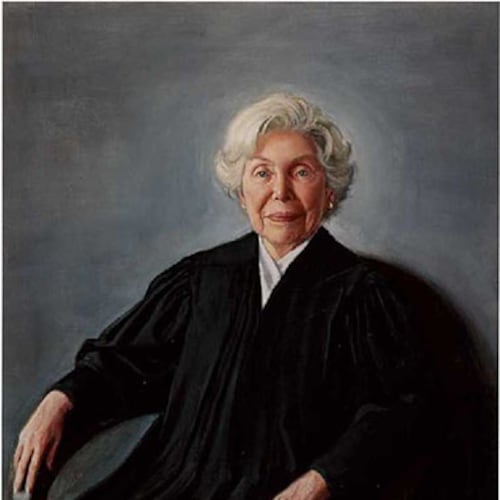Arquimides Gonzalez, serving a life sentence in a South Georgia prison, didn't have a lawyer and couldn't speak English.
Yet he began filing court motions that sought to overturn his kidnapping conviction stemming from his violent attack against an ex-girlfriend in Gwinnett County. After a state court judge ruled against him, Gonzalez asked the Georgia Supreme Court to take his case.
Not only did the state high court agree to hear it, this past Monday it ruled unanimously that Gonzalez's kidnapping conviction, which carried the life sentence, must be thrown out.
Credit: Bill Rankin
Credit: Bill Rankin
This doesn't mean Gonzalez will walk out of prison anytime soon. He still has time to serve for other convictions. But the mere fact he got his case to the state's highest court is remarkable.
"It's a pretty amazing story," said Sarah Gerwig-Moore, who runs The Habeas Project at Mercer University's law school. The project provides free legal representation to prison inmates who are not serving death sentences.
The Habeas Project monitors the state Supreme Court's docket to see which cases the justices agree to hear that were brought by inmates who didn't have lawyers representing them. When the court took Gonzalez's kidnapping case, the project jumped in and offered to help, Gerwig-Moore said.
Two of the project's Spanish-speaking students communicated the offer to Gonzalez, she said.
In May, Sarah Flack, a recent Mercer law school graduate who worked at The Habeas Project, successfully argued the case on Gonzalez's behalf before the state Supreme Court. It marked the second time in recent years a case argued by The Habeas Project resulted in a kidnapping conviction being thrown out.
As for how Gonzalez got the court to take the case in the first place when he couldn't speak English?
"He must have had some help," said Gerwig-Moore. She was referring to the jailhouse lawyer who certainly wrote up Gonzalez's petitions and, after Monday's decision, is probably getting a lot more requests for legal help from fellow inmates.
In 2007, a Gwinnett jury convicted Gonzalez for brutally attacking his ex-girlfriend in two separate incidents in 2005. He is serving a life sentence for a kidnapping with bodily injury conviction and sentences totaling 41 years for aggravated assault, aggravated battery and family violence battery convictions.
On May 24, 2010, Gonzalez, representing himself, filed a petition challenging his kidnapping conviction. The petition contended the underlying facts of the case did not support a kidnapping conviction under new requirements set out in a state Supreme Court decision in 2008, one year after Gonzalez's trial.
Prosecutors charged Gonzalez with kidnapping based on what occurred April 9, 2005, at his former girlfriend's apartment. In a jealous rage, Gonzalez began hitting and choking the woman and grabbed her cell phone when she said she was going to call police. When she tried to leave her apartment, he grabbed her by the hair and threw her against the wall -- the basis for the kidnapping conviction.
Before the state Supreme Court's 2008 decision, only the slightest movement of a victim had to be shown to satisfy one of the primary requirements of the kidnapping statute. But the court's decision established new factors for jurors to consider. Among them: the duration of the movement of the victim and whether the movement itself presented a significant danger to the victim independent of the danger posed by a separate offense.
In the unanimous opinion issued Monday, Justice Harris Hines wrote that was no evidence to support a finding that the movement of pulling the victim back by her hair "was anything other than of minimal duration." The act itself "was part and parcel of one violent event," Hines said, noting that after Gonzalez grabbed the victim's hair, he stopped attacking her and left he apartment.
Gonzalez will now have to be re-sentenced to the 41 years he received for the other offenses.
"He won't be out of prison, but this drastically reduces his time to serve," Gerwig-Moore said. "This was a good case to highlight because it showed the kidnapping charge was a real stretch."
On Thursday, Gerwig-Moore said she'd yet to be able to telephone Gonzalez and tell him the news of the court's decision. But she said sent the decision to him in an envelope that included two letters -- one written in English, the other in Spanish.
About the Author
The Latest
Featured



